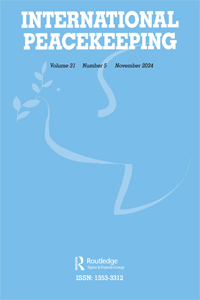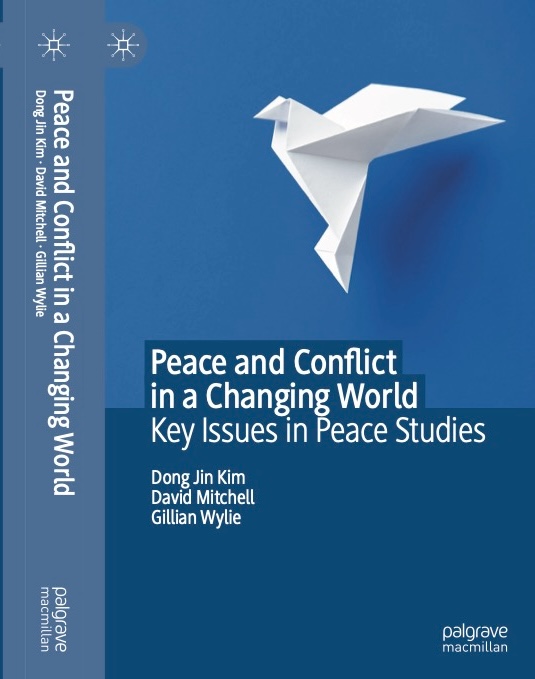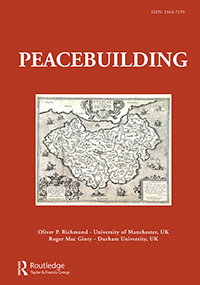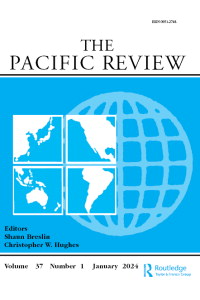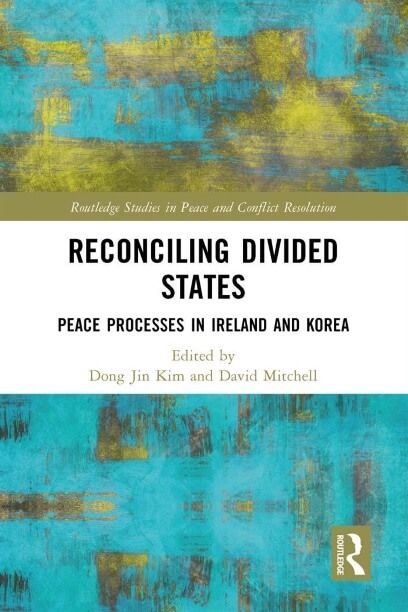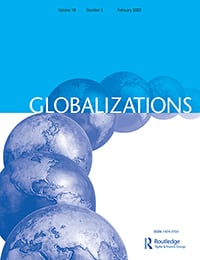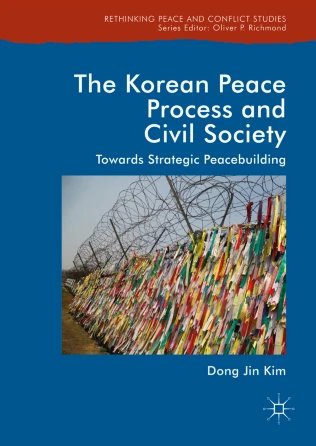Journal Article, 2025
This article examines the utility of the Triple (Humanitarian, Development, Peace) Nexus in linking aid cooperation to peacebuilding by conducting a case study on the Korean peninsula. Since the 1990s, humanitarian and development cooperation in North Korea has raised hopes that such cooperation could contribute to peacebuilding on the Korean Peninsula. However, these aid efforts have been marked by significant fluctuations due to heightened tensions on the Korean Peninsula. This study employs a qualitative methodology, including problem-centred expert interviews with former/current officials from the UN, and European aid agencies, who are considered relatively neutral, and the US and South Korean aid agencies, whose countries are main parties in the Korean conflict. Drawing on the interrelated theoretical insights of contact theory and strategic peacebuilding, the findings suggest that aid actors have different strategic advantages and disadvantages in operationalizing the Triple Nexus, according to their positionalities concerning the protracted Korean conflict context. We argue that for the Triple Nexus to represent more than a mere rebranding of contentious efforts to connect aid and peacebuilding, it requires, not only the recognition of potential comparative advantages of different sectors, but also the understanding of strategic advantages and disadvantages of actors with different positionalities.
Book, 2024
key Issues in Peace Studies
Written by a team of experienced teachers and researchers in Peace Studies, this book assesses the field of peace and conflict research from its origins to the present day. It introduces influential concepts and theories, and examines the processes and dynamics of peacebuilding. Using case studies from around the globe, the book discusses a range of key topics in Peace Studies, such as: the meanings of peace; the causes of violent political conflict; peace processes and peace agreements; international peace and security; peace activism and the role of civil society; human rights, transitional justice, and reconciliation; asylum, migration and borders; gender, war, and peace; sustainable development and peace; religion, conflict, and peace; arts, sport, and peace; and peace education. The book will be of interest to scholars and students in peace studies, international relations, security studies, war and conflict studies, conflict transformation, as well as anyone interested in the research and practice of peace.
Journal Article, 2024
This article proposes a trans-local turn in peacebuilding in frontier societies. Drawing on René Girard’s concept of ‘mimetic desire’, the article conceptualises how a crisis of ontological insecurity cannot be addressed by rational approaches to institutionalising a process to resolve incompatibilities between conflict parties, but requires de-escalation of the mimetic rivalry between the parties, who are often described as being in conflict over identity. Empirically, the article focuses on the, apparently very different, examples of intractable conflicts in Northern Ireland and Korea, and the trans-local peacebuilding interactions between the two. This article demonstrates how relationships of unresolved mimetic rivalry have intensified ontological insecurity in both cases, creating dynamics of existential anxiety and mutual antagonism, and how the reflexivity based on peacebuilding stories from other frontier societies, which do not impose direct ontological threats, appears to increase hope for change by transcending the endemic sense of ontological insecurity.
Journal Article, 2024
The structural dynamics of the Korean conflict has evolved not only with the inter-Korean rivalry, but also the geopolitics of great power rivalries. The conflict structure was reinforced going through the Korean War and the Cold War. There have been several South Korean initiatives to build peace with North Korea in the post-Cold War era, however the peace process fluctuated due to the escalation of the US-North Korean conflict over the nuclear and missile development of North Korea, and the dispute over North Korea policy in the South Korean society. Building on the sociological understanding of ‘duality of structure’ and the biological insight of ‘niche construction’, this article demonstrates the South Korean potential, as a democratic state, to construct a niche space for its citizens’ peacebuilding with North Korea under the ongoing Korean conflict structure, as well as its limitations in protecting the space before scaling out the disruption of the conflict structure, when governments do not have a clear sense of agency about their policy due to the lack of consensus among its citizens.
Book, 2022
Peace Processes in Ireland and Korea
This book offers a distinctive perspective on peace processes by comparatively analysing two cases which have rarely been studied in tandem, Ireland and Korea.
The volume examines and compares Ireland and Korea as two peace/conflict areas. Despite their differences, both places are marked by a number of overlaid states of division: a political border in a geographical unit (an island and a peninsula); an antagonistic relationship within the population of those territories; an international relationship recovering from past asymmetry and colonialism; and divisions within the main groupings over how to address these relationships. Written by academics and practitioners from Europe and East Asia, and guided by the concepts of peacebuilding and reconciliation, the chapters assess peace efforts at all levels, from the elite to grassroot organisations. Topics discussed include: historical parallels; modern debates over the legacy of the past; contemporary constitutional and security issues; civil society peacebuilding in relation to faith, sport, and women’s activism; and the role of economic assistance. The book brings Ireland and Korea into a rich dialogue which highlights the successes and shortcomings of both peace processes
This book will be of interest to students of Peace and Conflict Studies, Irish Politics, Korean Politics, and International Relations.
Journal Article, 2022
This article explores lesson sharing between local civil society peacebuilders in the Korean and Northern Ireland peace processes. It presents reciprocal empowerment, a concept primarily utilized in women’s empowerment literature, as a useful conceptual framework to be developed for examining interactions between local civil society peacebuilders who have mutual self-interest to overcome obstacles in top-down peace processes. Recently, historical similarities and concurrences in the peace processes have been increasing the lesson sharing visits between Korean and Northern Irish peacebuilders. Based on the in-depth empirical research on these visits, this article argues that comparative consultations between peace processes would not only generate useful lessons for each context, but also empower local peacebuilders, civil society in particular, provided the comparisons and interactions are reciprocal, not unidirectional or hierarchical. In this sense, this article contributes to the conceptual and practical discussions of every day, emancipatory peacebuilding.
Report,2021
An International Working Group on Individuals and Communities in Transition
Communities and individuals across the world are in varying states of transition from violence to peace.
While the character of violence might differ, from paramilitarism and criminal gangs to civil war and
genocide, societies moving toward peace share similar challenges. As such, the lessons gleaned from one
context are informative for others, though these lessons are rarely shared, as scholars and practitioners
tend to work within their given case, theoretical framework, or methodology. To help bridge these divides,
a collective learning platform was designed, bringing together individuals working on moving communities
and individuals from violence to peace around the world. Though the participants discussed research and
practice from highly diverse contexts, including Colombia, Northern Ireland, the Korean Peninsula, Rwanda,
and Yemen, several overlapping themes emerged. This executive summary synthesizes these key themes,
providing a high-level summary of the collective learning that took place within the platform.
Book, 2019
Towards Strategic Peacebuilding
The Post-Cold War era witnessed a dramatic rise in breakthroughs for peace processes, including the Korean peninsula, between parties mired in protracted conflict. However, many such processes broke down within a short period of time. This book explores the possibilities for comprehensive and sustainable peacebuilding strategy in the Korean peace process, beyond reaching an agreement, by reviewing diverse peacebuilding activities from government and civil society.

